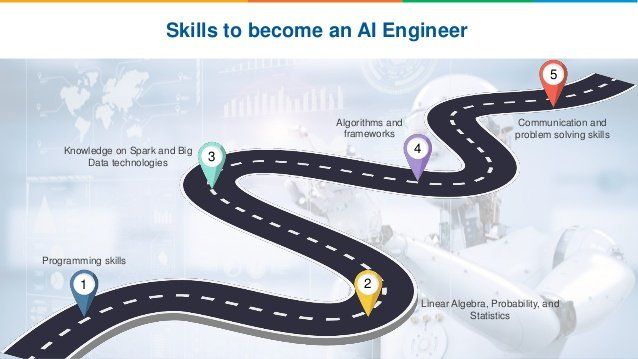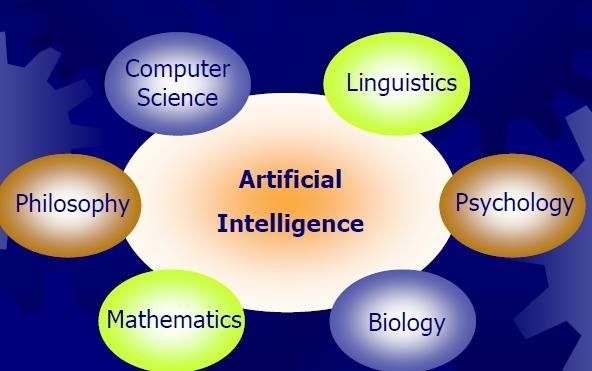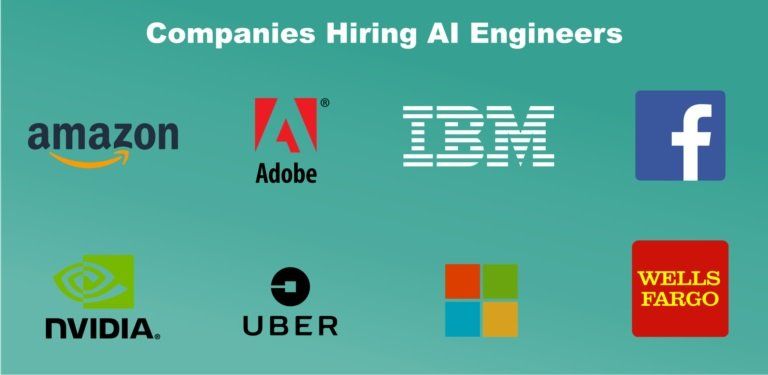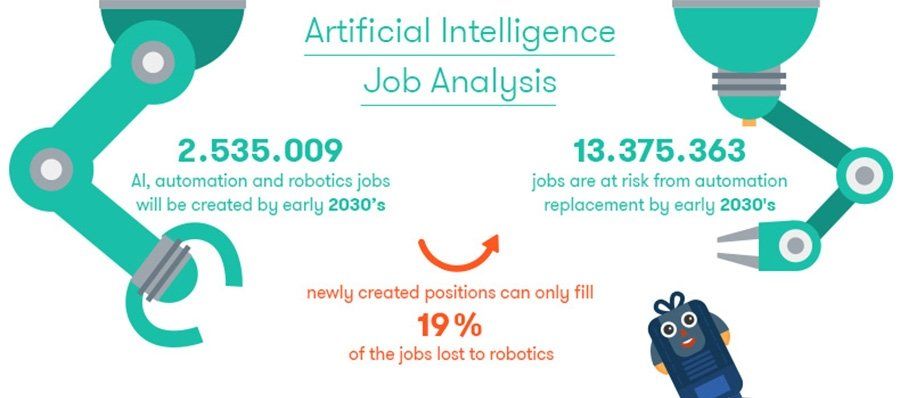Land Your Dream Job
AI-Powered Resume Builder
Create an ATS-friendly resume in minutes. Free forever!
9 min to read
With the rapid development of Artificial Intelligence & Machine Learning in different walks of the IT industry, the demand for a trained, competent artificial intelligence engineer is at an all-time high.
Developing AI-powered solutions is a promising activity across many sectors, that have started embracing artificial intelligence (AI) & Machine learning (ML) techniques to achieve better results & profits.
Tech giants like Google, Microsoft, Apple, and Amazon are investing billions of dollars in AI products and services annually. The global AI market is experiencing a mammoth growth of 154 percent.
Learn more about Artificial Intelligence here!
Primarily, 3 major factors contribute to this exponential growth, they are:
The concepts and decisions which were unfathomable a few years back have all come into existence and practicality. Thanks to AI & ML techniques!

Business analytics professionals are upgrading themselves to become citizen data scientists and joining forces with traditional data scientists to build machine-learning models that provide insight and recommendations about future decisions.
Building a career in artificial intelligence will reap huge benefits in the coming years for future software enthusiasts.
AI-centric organizations are especially emphasizing the value of Artificial Intelligence Engineer in their organization and staffing it with people who can perform a hybrid of data engineering, data science, and software development tasks.
Unlike data engineers, Artificial Intelligence Engineers don’t write code to build scalable data pipelines and often don’t compete in Kaggle competitions.
Any organization’s top software engineers/ programmers are best positioned to evolve into highly successful & competent Artificial Intelligence engineers, as they have a very strong full-stack application development background and experience with embedding machine learning algorithms.
Computer science freshers can also fill some demand for AI engineers with their combination of programming, strong math & statistics fundamentals, and data science skills honed by choosing machine learning as their preferred elective.
Let’s learn more about how to become an artificial intelligence engineer in detail by understanding what is artificial intelligence first-

Artificial Intelligence is making intelligent computer programs mimicking human behavior for problem-solving to make machines achieve learning, reasoning, and percept.
Artificial Intelligence is the theory and development of computer systems able to perform tasks normally requiring human intelligence, such as visual perception, speech recognition, decision-making, and translation between languages.
According to Wikipedia, Artificial intelligence – Colloquially, the term “artificial intelligence” is often used to describe machines (or computers) that mimic “cognitive” functions that humans associate with the human mind, such as “learning” and “problem-solving”.
In computer science, artificial intelligence (AI), sometimes called machine intelligence, is intelligence demonstrated by machines, unlike the natural intelligence displayed by humans and animals.
An artificial intelligence engineer works with algorithms, neural networks, and other tools for the advancement of artificial intelligence to tackle the unique design challenges that result from combining the logic found in traditional applications with the learned logic from machine learning models.
AI engineers extract data efficiently from a variety of sources, build and test their machine-learning models, and deploy those models using embedded code or API calls to create AI-infused applications.
Following are their work considerations :

Artificial Intelligence Engineer will be in huge demand over the coming years and if you are curious about AI & ML concepts, this seems to be the perfect career choice for you.
Without further ado, let’s jump right in!
In the roadmap of ‘How to Become an Artificial Intelligence Engineer’, we saw some Technical and Business Skills required.

1. If we start from the basics, one needs to possess a Bachelor’s Degree first to start a career in artificial intelligence.
Education Prerequisites–
2. Secondly, fine-tune your Technical Skills– To become a successful Artificial Intelligence Engineer one needs to be good at both programming & Software Development techniques and practices.
Most importantly, all engineering aspirants are recommended to brush up their skills both theoretically and practically about:
3. Business Skills– One must possess great business skills as well to become a successful artificial intelligence engineer.
Some of these skills include:
4. Another Option is to go for specified specialized industry-recommended certifications for ML (Machine Learning), deep Learning, or Data Science. This will help you get in-depth knowledge of topics both theoretically and practically.

To become a successful AI Engineer, you have to become proficient in some programming languages.
A few of the languages that work well with AI are:
You can start with a language that fits your learning curve and helps you get started with AI. Python is considered a favorite of developers and artificial intelligence engineers because of its simplicity, clear syntax, versatility, and large library.
You can also start with Java or C++, but you will face portability and multi-tasking issues. Also, Python would not be enough, so we recommend starting with Python or R and eventually moving to learn algorithms. Make sure you’re familiar with basic algorithms, as well as classes, memory management, and linking.
One needs to be good at programming languages as well as have a solid understanding of classes and data structures to succeed in AI engineering.
Statistics is the backbone of any algorithm. Your entire AI program will depend on the type of algorithm that you use. To work on an algorithm, you will need considerable knowledge of statistics, calculus, algebra, and probability to boost your AI program.
Furthermore, in your AI journey, you will encounter Machine Learning models like Naïve Bayes, Hidden Markov, etc., which require a firm understanding of probability.
Also, you need to be quite familiar with matrices, vectors, and matrix multiplication. If you have an understanding of derivatives and integrals, you should be clear about most of the concepts coming up.
To build a model or use an existing one, you must have a good knowledge of algorithms. Also, to grasp the concepts of an algorithm, you must have a solid understanding of applied mathematics.
You will be frequently using your algorithms and applied mathematics knowledge in:
Don’t forget, Machine Learning and Artificial Intelligence are much more math-intensive than front-end development.
Natural Language Processing (NLP) is all about combining computer science, information engineering, linguistics, and AI into one and programming the system to process and analyze large datasets.
As an AI Engineer, you have to work extensively on NLP, which involves language, audio, and video processing by leveraging various NLP libraries and tools, like:
A neural network is a system (software or hardware) that works similarly to a human brain. As per the neural functionality of the human brain, the concept of artificial neural networks is developed.
It has many commercial and business applications, wherein as an AI Engineer, you will solve complex problems in the areas of pattern recognition, facial recognition, handwriting recognition, etc.
https://www.youtube.com/embed/uBV0w8Qwhv4?feature=oembed
Apart from Technical Skills, there are certain Non-Technical skills or Business Skills that are quite essential as well if you wish to succeed in your AI career as a successful artificial intelligence engineer.
As an AI Engineer, you will be working extensively on data. Thus, your stakeholders will be depending on you for solutions. For that, you need to communicate your findings efficiently.
You’ll need to explain ML and AI concepts to people with little to no expertise in the field. You might also need to learn from electrical and robotics people.
Communication is going to make all of this much easier. Also, having good communication skills will make you go places everywhere and establish a good rapport with your stakeholders.
AI Engineers must look at the numbers, trends, and data and come to new conclusions based on the findings. Questioning established business practices and brainstorming new approaches to AI is a normal routine part of an AI engineer job profile.
To become an AI Engineer, you have to gear up fast to fact-check the numbers and data. This requires analytical thinking. You also have to put questions to the data analytics team to ascertain the feasibility of data and brainstorm with the key stakeholders.
Iterating ideas as quickly as possible is mandatory for finding one that works. In machine learning, this applies to everything from picking the right model to working on projects such as A/B testing.
You need to do a group of techniques used to quickly fabricate a scale model of a physical part or assembly using three-dimensional computer-aided design, especially while working with 3D models.
If an Artificial Intelligence Engineer does not have business acumen and the know-how of the elements that make up a successful business model, all those technical skills cannot be channeled productively.
Whichever industry you’re working for. You should know how that industry works and what will be beneficial for the business.

According to Gartner Report, Artificial Intelligence will create 2.3 million jobs by 2020. Job Growth has already flooded the industry, as the demand for artificial intelligence engineers has already doubled over the past few years.
Companies that hire top AI talent range from startups like Argo AI to tech giants like IBM and many more like Google, Amazon, Microsoft, etc.
Artificial Intelligence Engineer Salary in the US:
A well-qualified artificial intelligence engineer is hugely in demand across the globe.
The average annual salary of entry-level AI Engineers is US$71,600, while the average annual salary of experienced AI professionals is US$248,625.

Hope you got an idea about the Artificial Intelligence Engineer profile and the skillsets required that make this job a unique of its kind, much sought-after profile of 2021. How did you like our write-up on AI? Let us know in the comments section! Also, don’t forget to keep coming back to Codersera for more informative write-ups!
It takes approximately six months to complete a machine learning engineering curriculum. If an individual is starting without any prior knowledge of computer programming, data science, or statistics, it can take longer.
AI has a high learning curve, but for motivated students, the rewards of an AI career far outweigh the investment of time and energy. Succeeding in the field usually requires a bachelor's degree in computer science or a related discipline such as mathematics. More senior positions may require a master's or Ph.D.
To be an AI engineer, completing a certification course in Data Science, Machine Learning, or Artificial Intelligence is highly recommended. These certifications will add value to your resume and will help you to acquire in-depth knowledge of AI topics, along with hiking up your pay to match an AI Engineer's salary.
Need expert guidance? Connect with a top Codersera professional today!